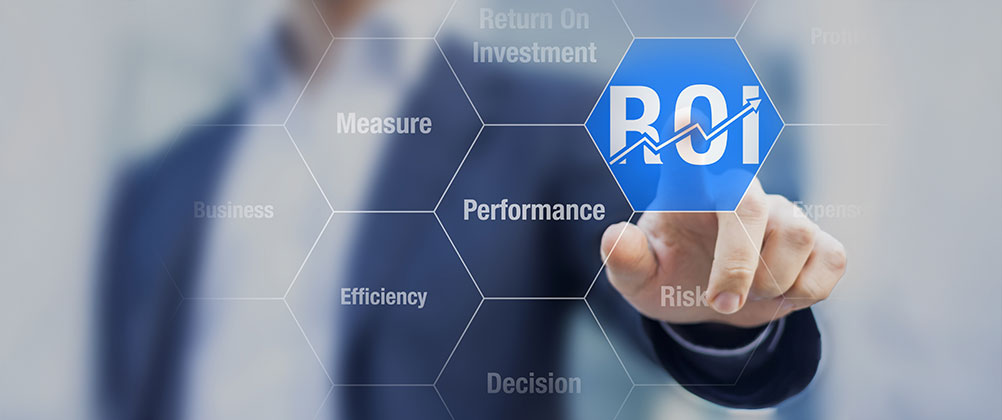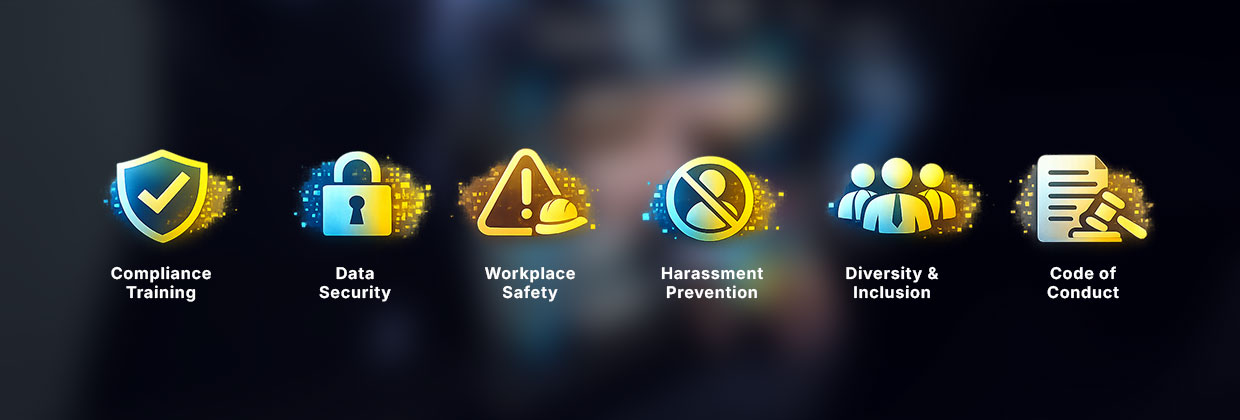How to Measure and Improve ROI in Learning With a Modern LMS

Companies invest in learning programs to improve skills and drive growth. Leaders want to see clear returns from these efforts. ROI in learning helps teams understand the value of each training program. It shows how learning supports performance and business goals.
Today’s organizations use modern learning platforms to track results with real data. These platforms help leaders make informed decisions and guide improvement. With the right system and process, learning teams can show impact and strengthen training strategies.
What Is ROI in Learning and Why Does It Matter?
ROI in learning shows the financial value gained from training programs. Leaders measure it to see if learning investments support business goals. ROI in learning and development links skills growth with performance results.
When companies track learning ROI, they uncover gaps and opportunities. They also learn which programs drive the best impact. A strong focus on ROI builds a training culture that supports long-term success. It helps teams justify investments and fine-tune learning strategies.
How a Modern LMS Improves ROI Tracking
A modern LMS helps companies track learning ROI with real-time data. It captures progress, completions, scores, and skill growth. It also highlights trends that help teams refine training plans. With a modern LMS, leaders check learning activities across teams and departments.
The system connects learning with performance indicators. It shows how training affects outcomes like sales, quality, and productivity. This clarity helps companies adjust programs and drive stronger returns.
Key Metrics to Measure Learning ROI
Measuring ROI in learning needs the right metrics. These data points reveal the strength of each training program. A modern LMS makes these metrics easy to access.
With these metrics, companies create a full picture of training value. They learn what works, where to invest, and how to shape future programs.
- Completion Rates
Completion rates show how many employees finish each course. Low rates point to issues like unclear goals or weak engagement. High rates reflect strong interest and alignment with needs.
- Assessment Scores
Scores reveal skill growth. Leaders track these numbers to see if employees understand the content. When scores rise, skills improve. When they fall, teams review content or learning paths.
- Time to Competency
This metric shows how fast employees reach required skill levels. Shorter timelines point to stronger learning design. Modern learning platforms track this path for each learner.
- Performance Improvement
Learning should influence real job results. Track changes in sales numbers, error rates, quality output, and customer satisfaction. A modern LMS links training with these metrics.
- Engagement Levels
Engaged learners interact with content more often. They explore personalized learning paths and reach goals faster. Engagement data shows which programs hold attention and which need improvement.
- Training Costs
Include content creation, delivery, systems, and trainer efforts. Compare costs with gains to understand true learning ROI.
How to Calculate Training ROI?
The formula to calculate training ROI:
ROI = (Training Benefits – Training Costs) / Training Costs × 100
Training benefits are measurable with increased revenue, lower errors, or reduced turnover. Training costs include tools, content, and staff time.
This formula shows the exact financial return of each program. It helps leaders compare programs and prioritize investments that deliver strong learning ROI.
How Modern LMS Platforms Turn Learning Data Into Actionable Business Insights
Modern LMS platforms collect learning data across the entire company. They track skill gaps, progress, behavior, and performance results. These insights guide strategic decisions.
Leaders check dashboards and see how employees move through personalized learning paths. They find patterns that show which content supports faster growth. They also see where employees struggle. This helps teams fix weak areas and strengthen training design.
A modern LMS also supports programs tied to business goals. For example, a corporate training platform can connect sales training with revenue outcomes. It can match safety training with reduced incidents. These links help companies prove clear ROI in learning.
Modern learning platforms also support predictive insights. They show who may fall behind or who needs extra help. Leaders act early and prevent performance gaps. They also guide high performers toward advanced skills.
This level of insight helps companies build a culture of growth. It aligns learning with strategy. It turns training from a cost center into a growth driver.
How to Improve Training ROI in 2026?
Companies need strong strategies to increase LMS ROI in learning in 2026. They must align goals with business needs. They should use a modern LMS to track progress in real time. Leaders must create personalized learning paths for each role.
They should update content often and keep it relevant. Feedback from employees helps teams refine training. Companies that follow these steps improve training impact and show clear returns.
Reiterate the Importance of Tracking Learning ROI
Learning ROI supports smart planning. It highlights the true impact of training programs. It helps companies justify investments and improve performance. When teams track ROI in learning and development, they uncover what drives growth.
They see how training supports goals and boosts efficiency. They gain the insight needed to refine strategies. ROI tracking creates a cycle of improvement that drives long-term success.
How Skill Lake Makes This Process Seamless
Skill Lake gives companies the tools they need to track ROI in learning with clarity. It provides dashboards that show progress, performance, and business outcomes. Teams check real-time metrics and compare programs with ease.
Skill Lake links each course with key objectives. It highlights how learning affects sales, service, quality, and productivity. The platform supports personalized learning paths for every role. This helps employees reach skill levels faster.
It also helps teams close gaps with structured plans. Skill Lake gathers data from each activity. It turns the information into insights leaders can use. This leads to stronger decisions and better training results.
Companies that use Skill Lake gain clear visibility into learning ROI. They identify cost savings, skill growth, and performance improvements. Skill Lake supports continuous growth through strong analytics and simple workflows. It helps companies build learning programs that drive measurable returns.
Strengthen your learning strategy. Track ROI with clarity. Start with Skill Lake today.
FAQs: Measuring ROI With a Modern LMS
Why should companies measure LMS ROI in learning?
Tracking LMS ROI in learning helps teams build strong training programs. It guides leaders toward better decisions and greater impact. Companies gain stronger skills, higher performance, and steady growth.
When teams measure learning ROI often, they find gaps and fix them fast. They create programs that support real business results. ROI tracking turns learning into a powerful force for progress.
How does a modern LMS help in ROI tracking?
A modern LMS like Skill Lake measures progress, performance, and results. It also connects learning with business metrics and shows trends.
How often should teams track LMS ROI?
Teams should measure it throughout the year. Frequent tracking keeps programs aligned with goals.
Can personalized learning paths improve returns?
Yes. Every job role and skill development strategy requires specified training initiatives. Targeted content and personalized learning paths can help bridge skill gaps faster. That’s why modern LMS features focus on offering personalized learning experiences with relevant course recommendations, learning bytes, and multiple learning modes. This directly impacts ROI in learning.
Can a corporate training platform replace traditional training?
Yes. Corporate training platforms can completely replace traditional training methods. It offers better management, improved course delivery options, and effective tracking abilities.
Build a culture of continuous learning with Skill Lake’s state-of-the-art people development platform. Give your employees professional training to help them excel in their job roles and propel your business to greater efficiency and success.
Start Today

Anoop Kumar MS
Anoop Kumar MS, Product Manager of Fingent Global Solutions Pvt. Ltd., is an experienced product specialist with expertise in identifying customer needs and delivering innovative, data-driven solutions. Skilled in wireframing, UX, requirements analysis, risk assessment, team management, and root cause analysis, he excels in managing product lifecycles and fostering seamless collaboration to address real-world challenges.